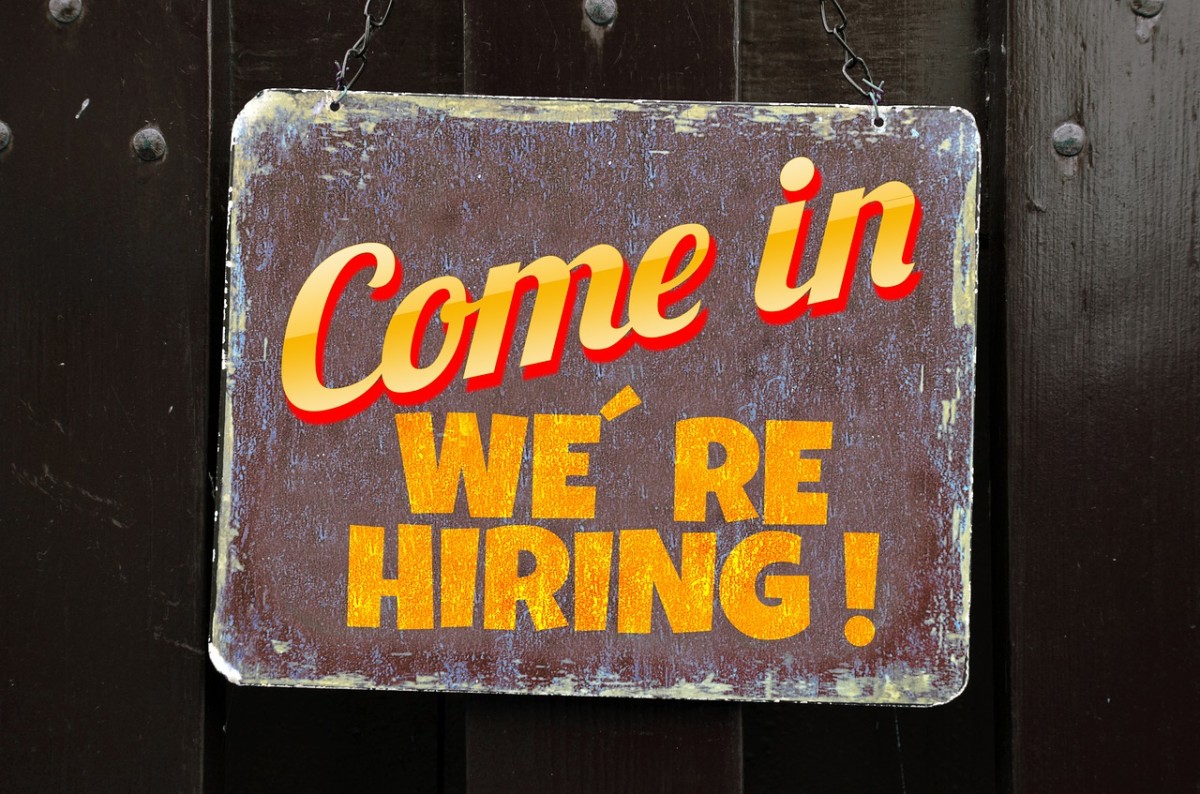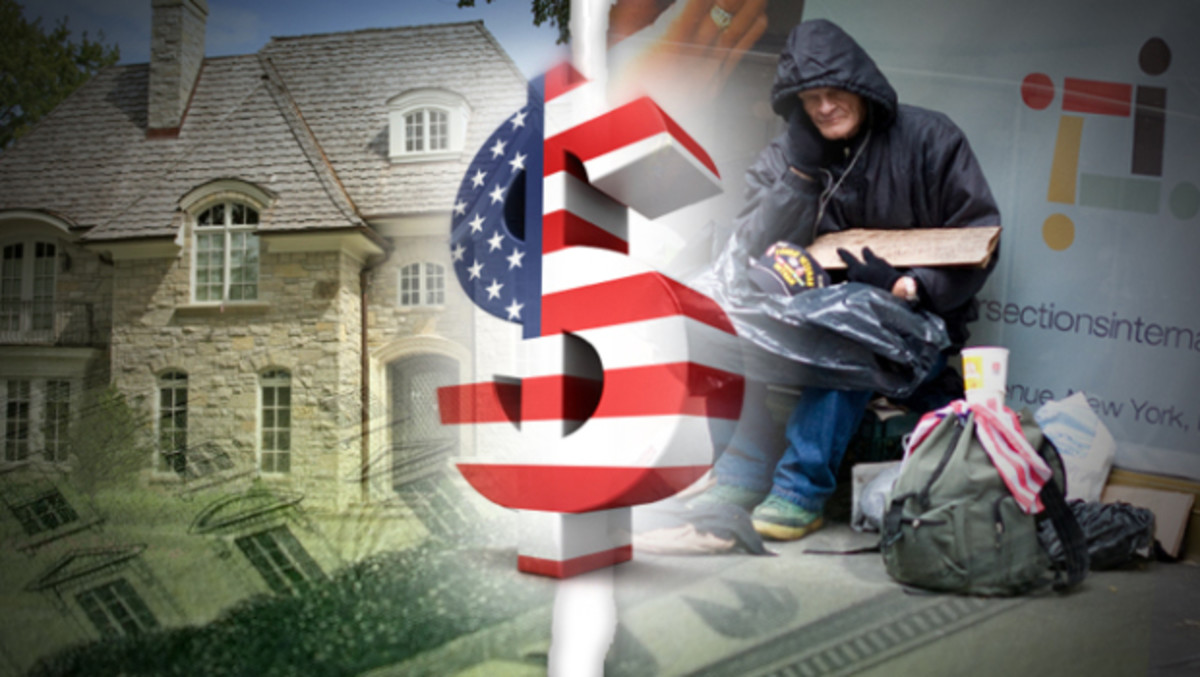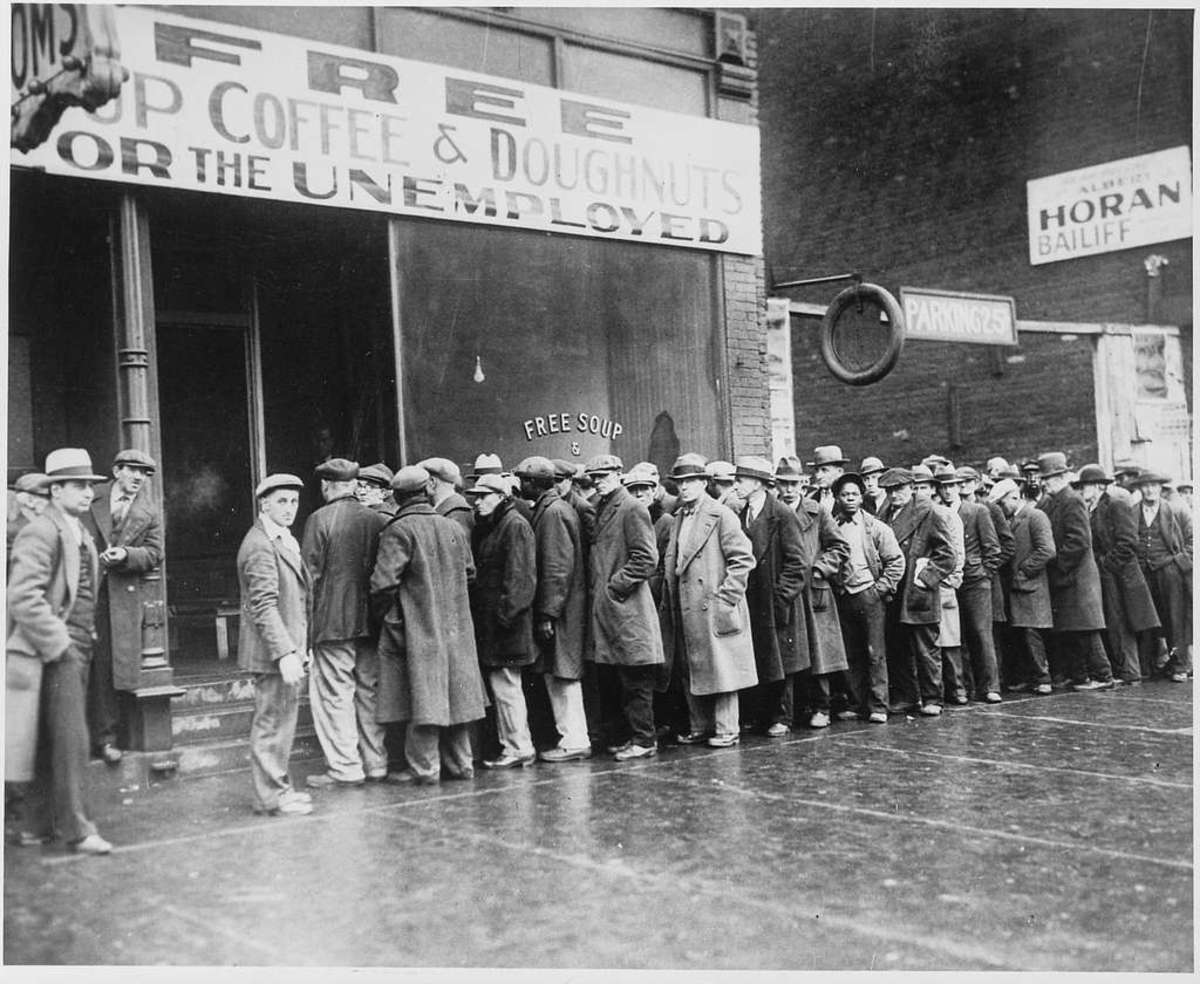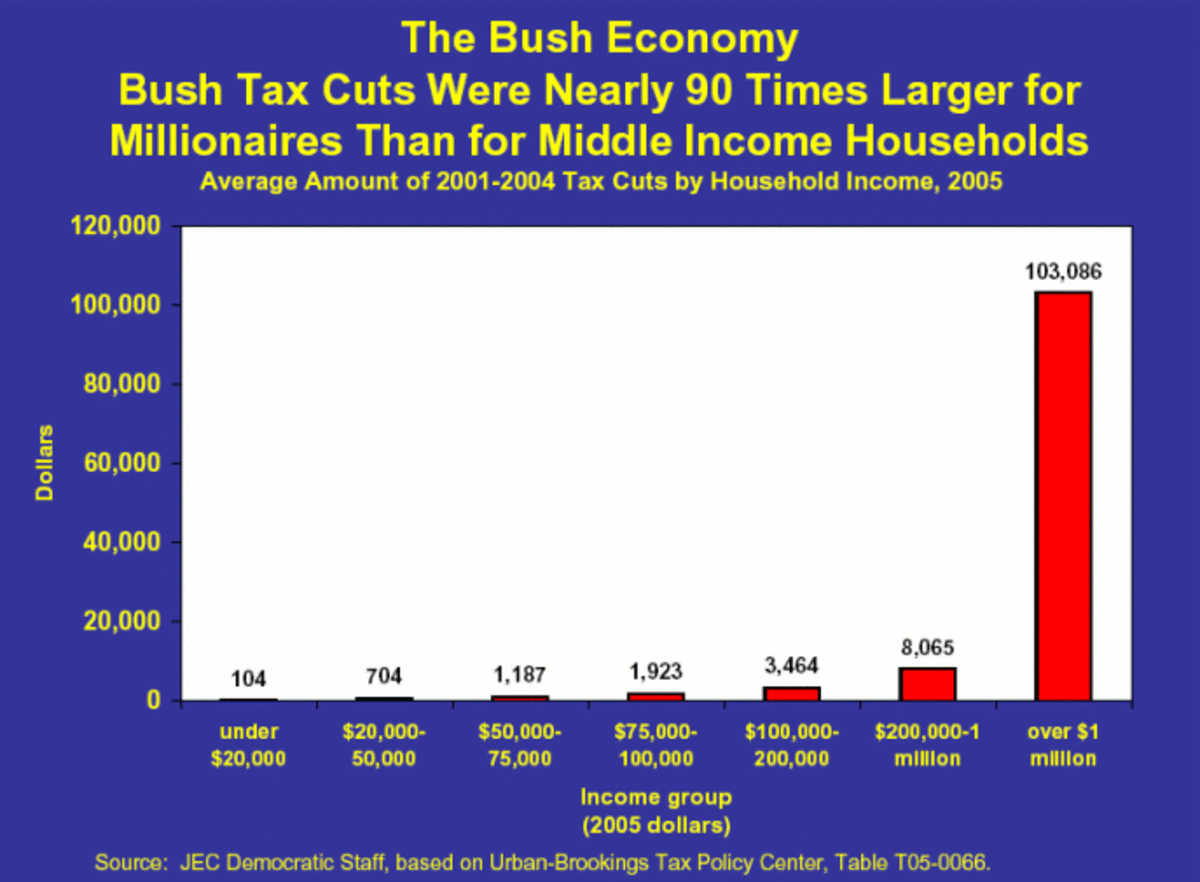Abandon Tipping
Why tip?
Tipping, or a "gratuity" is often expected in restaurants or other service industry jobs, but is it mandatory? In the United States, at least, everybody learns at a young age the seemingly magic (and arbitrary) rule of 15%.
Why do we do this? Because we know that the servers "live on their tips". In other words, the amount they get paid by their employer (the restaurant) is so low, it is below the poverty line. Often the amount is just enough to pay the necessary taxes (Federal Income, FICA, Medicaid, State Income, etc) leaving employees with an official income of $0. Cha-ching!
Thanking for paying your due wage?
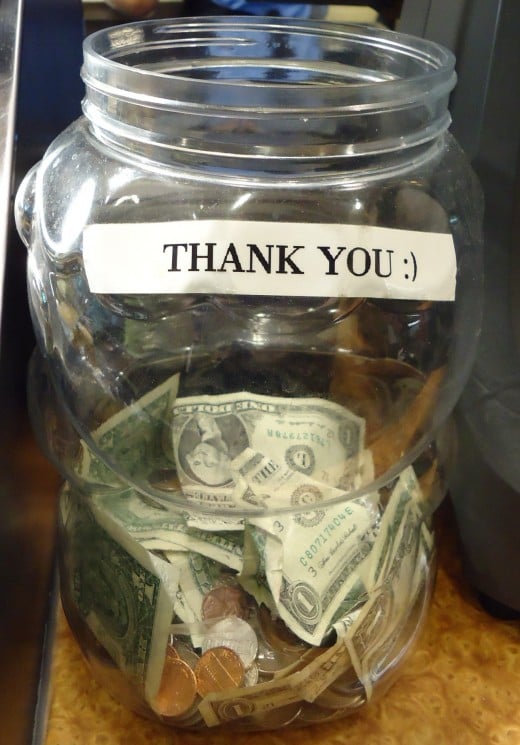
The American system of tipping is a pain for everyone involved:
- Diners are put in the position of needing to know what the prevailing wage for the type of work involved is. Does the establishment pool tips, or is this just for your server? Do the servers tip out the bartenders and busboys? Does this server just take your order or are they doing sidework (cleaning and organizing and preparing for the next shift) as well? How much should that sort of work be hourly? Is the restaurant empty, should we have to make up for that? Is it crowded, should we expect them to make a lot more with all these tables?
- Servers may have a hundred different "bosses" in any given shift. It's hard enough to please one boss, imagine a dozen different priorities, a score different protocols (unspoken, of course), and an untold litany of special "could you just do this one thing?" requests. No wonder customers are called "patrons"! ("Boss" in French and Spanish!)
- Owners and operators no longer have control over how their employees are compensated. What if you see someone work incredibly hard, pick up the slack for their colleagues, or do the jobs of three people (callouts are not infrequent), and then get paid... half of what they normally make at a typical day. That almost never happens in any job, right? Happens all the time in food service. Or, maybe your lazy co-worker lucks into some generous drunk and confused people who are out celebrating and decide they tip on the $500 bottles of wine that just need a quick opening rather than just the food? You'd be seething as you bring sendback after sendback from some picky customer who doesn't even now what "medium rare" means.
On average, for regular good service how much do you tip?
On average, for regular good service how much do you tip?
The phrasing can be tricky, too.
- "Gratuity added"
- "Service Included"
- "Hospitality charge"
Is this a "charge" or do I have to pay it? Is this the tip? Is all of the money going to the server or is some to the house? Why not just be explicit? "Tips" or "Payment to servers"?
And why do the front-of-the-house (or front of house or FOH -- the hosts, servers, bussers, bartenders, runners, and expediters) get lavished with monetary praise, but not the people who actually cook, prepare, and gorgeously plate your food (Back of house, or BOH)? Under the current gratuity system, waiters may expect to earn a 20 percent tip on most checks, earning upwards of $50,000 part-time at a nice restaurant. But a linecook or saucier doesn’t get extra padding to their paycheck, and the average salary is $35,000 a year for full-time work.
Gratuity included in USA
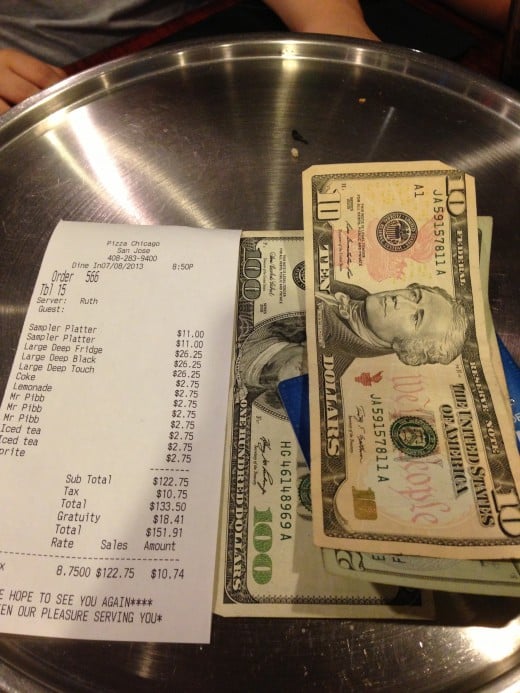
New York State recently made headlines when Governor Cuomo implemented a "wage board" which mandated a new minimum wage for the fast food industry. Many see this as a testing ground for an unqualified substantial increase in the minimum wage across the board. Either way, in incremental steps between now and 2021, fast food workers will see their wages hike up to a new $15 an hour minimum.
But what about "slow" food? In many cases the minimum wage for tipped employees is $2.13 and most New York servers make an hourly wage of $5.00. But, wait a minute, isn't the city’s minimum wage $8.75? The five dollar wage is called the "tipped minimum," an amount employers are allowed to pay as long as gratuities bring up wages to be equal to or greater than the full minimum.
So if you serve you might get lucky and have a 40 hour work week, which is $200 a week in your wages. Or roughly $800 a month. $10,000 a year. In other words, poverty salary.
The difference is that the customers are expected to make up the difference, out of their own choosing whether you make $30,000 a year or $60,000 -- instead of your meager $10K which would qualify you for just about any government assistance program available, while working fulltime no less!
How can we pay the BOH staff more and ensure servers' salaries are even (either across the board at the location (eliminating the influence good and bad luck have on their wallets) and across the calendar)? Pay everyone a reasonable, living wage.
We can't extend the extant tips to everyone who works in the restaurant. Gratuities are the legal earnings of the waitstaff. Pooling tips is an acceptable way to divvy up the night's collective bounty among the wairers, bussers, and bartenders, but owners can’t direct these funds to back of house staff like the cooks and dishwashers.
No tipping on an Irish bill

By ending tipping we can pay everyone in the restaurant industry more equitable hourly rates or salaries. There are progressive laws on the books that are going to be raising the wages across the board over the coming years, and these current imbalances will only become exacerbated later.
New federal regulations make more employees eligible for overtime and many states have or or are developing sick leave laws. Nobody wants the embarrassment of being a successful restaurateur and yet still seeing one of your best servers leaving your business to work the register at Burger King earning a steady $15 an hour in 2018.
The solution is simple. Raise all prices by 15% (or less) and make it obvious that tipping is not needed. Pay everyone 10-20% more. Tips can still be included, but it would in a more European-like system. Something small or sentimental to show appreciation. Customers will get the hang of it.
Don't think it'll work? Checkout:
- Upscale Pittsburgh eatery Bar Marco, that abolished tipping, started offering all employees a base salary of $35,000 and tripled their profits. After a few months of the experiment, employees are expecting to see $48K for the next year.
- The Linkery restaurant in San Diego, uses the 18% "service charge" but distributes it to all staff as it is not a "tip". They've seen improvements in their food and sales.
- New York City spot Sushi Yasuda after 14 years stopped offering the option of leaving tips in 2013, and all employees get salary, vacation, and paid sick leave
Obviously, unlike some, I am not advocating you stop tipping right now, hoping to topple the system via painful revolution. But look out for restaurants in your area that don't encourage tipping, it might be easier than you think. Burger-sensation Danny Meyer (Is there a Shake Shack near you) of the Union Square Hospitality Group is eliminating tipping at all of his brands in 2015.
Will you still choose to tip?
After reading this, how do you feel about tipping now?
© 2015 Jeramey Conrad

